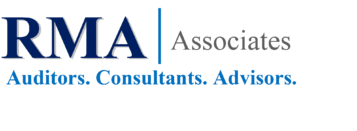Think broadly, be dependable, and seek professional growth to position yourself for promotion.
1 August 2018
It’s tough to reach the top. Of the thousands of ambitious professionals who embark on a career in finance each year, only a select few will reach senior executive positions. Not only do you have to be an exceptional performer, but you also have to manage the perceptions and expectations attached to the role. We spoke with seven CFOs from different corners of the world, and they have one thing in common: Their roles extend far beyond accounting into all areas of the organisation, encompassing strategy, IT, HR, and more. So, knowing what they know now, what do they consider key to advancement in a finance career? Here’s the guidance they shared with us.
Brian McArthur-Muscroft
CFO
Paysafe (UK)
Our business operates in a very competitive industry, which naturally attracts a strong pool of candidates, so my advice is to stand out as much as possible, but be true to yourself. What is unique about you as an individual? What makes you stand out? In my view the soft skills of commercial acumen, presentation, and problem- solving are as important as technical ability. These should be harnessed and built upon. For example, negotiating and influencing are important abilities for any finance professional, and being able to work effectively and harmoniously as a team is critical and just as important as any individual strengths.
Another important factor is knowledge of the finance function in relation to how it interacts with other parts of the business. The best way to do this is by building relationships with other stakeholders. Understand their pressures and needs. Be able to explain complex financial data to other sides of the business that may not have a financial background. By interacting with other departments, opportunities may be presented that allow the finance function to better its standing in the business while solving a communal problem.
There is no golden ticket for being a great financial professional. Learning, growth, and relationships are key.
Yang Min
Vice-president and CFO
Weiming Education Group (China)
Think broadly and act professionally. First of all, every employee should remember when they join a company that their purpose is not only to fulfil their job description like a machine, but to be proactive and move the business forward in everything they do. The difference is that while focusing on your own working area whenever you meet obstacles or challenges, you should think broadly to see what is the best solution for the company, instead of what is best for your own work or the constraints of a certain policy. You carefully evaluate the different options and the risks attached, and propose what is best for the company. Even if you are still young and junior, if you want to be a CFO or senior manager or whatever your objective, you have to try to think from your superiors’ perspective. What your manager’s standpoint would be, what would they consider, what solution they expect. Rely on your most important professional skill: communication. I don’t mean to be just good at talking; it is just as important that you are good at listening. You already know what your ideas and concerns are; now listen to the other’s ideas and concerns. It’ll make your proposal even better.
When I say, “Think like a manager,” I don’t mean you should interfere into other people’s areas of responsibility. You can make proposals and offer solutions, but you have to act professionallywithin the scope of your role; never make decisions on behalf of others. Never treat yourself or interact with other people as if you’re the manager. That is a fatal mistake.
Paula Downey Jones, FCMA, CGMA
CFO
SmartDebit (UK)
Find suitable role models and, if you can, find an experienced mentor. Role models and mentors are great for helping to navigate the tricky path of relationships and politics within an organisation and are particularly helpful for women. Finding female role models/mentors is getting easier as there are more women in senior roles, although we are still thin on the ground.
Remember, though, there is no substitute for hard work. No matter how bright you are, at the end of the day it is your hard work that will matter. Say yes to as many opportunities as you can, but also remember to take people with you. A successful and happy career comes through relationships as well as hard work, and I do believe that advancing at the expense of others will harm you in the long run.
Michel Balsan
CFO
Société d’Exploitation de la Tour Eiffel (France)
My advice is to get out of finance. Manage business units in sectors that will allow you to lead teams and operational units to acquire a different vision of the business that reaches beyond the purely financial aspect. My own background is in engineering and evolved into management. At one point in my career, for example, I led a department for Air France in Marseille in charge of 250 people that mainly involved team management. I later trained at INSEAD business school and entered the field of finance. At the Tour Eiffel I joined in human resources management, became director of operations, and advanced into finance. Accounting is interesting, payroll is interesting, but it won’t be at the heart of your job as you advance in the ranks. Project management and team leadership skills will be increasingly critical. The human factor is exceedingly important. It is good to have diverse experiences and acquire a range of skills. This doesn’t mean you necessarily have to change employers. Even within the same organisation, except for a smaller business that may not have that option just by reason of size, you can opt to “abandon” finance to come back later, better equipped, in order to aspire to a position in the C-suite.
Ian Swanson
CFO
Delicato Family Vineyards (US)
Be flexible, be adaptable, and embrace change. The world we work in today is so far removed from the one I joined some 30 years ago. There were no personal computers, cell phones, or internet, and everything we did was written by hand, in pencil. Famed economist Peter F. Drucker said something very relevant to the world that the CFO operates in today: “In the post-capitalist society, it is safe to assume that anyone with any knowledge will have to acquire new knowledge every four or five years, or else become obsolete.” The classic view of the accountant of the past was someone with armbands and eyeshades sitting in a dark office with little contact with the rest of the business. Today, the CFO is more connected to other departments than ever before. CFOs are business generalists with a significant impact on the company’s strategy and risk management, as well as the financial results. They are asked to give opinions and insight into a wide variety of topics. In short, the CFO tends to “own” anything that does not clearly sit on someone else’s desk. The keys to success for today’s CFO are building strong connections with all levels of the organisation, providing a clear vision and setting expectations, being a strong communicator, and being open to new ideas and opportunities.
Andy Brown
CFO
Armadillo CRM (UK)
My top tips for an aspiring finance executive centre on the “four Rs”:
Relationships: You have the opportunity to meet and work with many people. Take these opportunities, and be as generous to them as you’d wish they were to you. Invest in good key relationships. Take time to know people and their targets and goals, too.
Rigour: As an accountant, often an expert professional being paid not insignificant sums to be a master of their craft, there isn’t room for “that’ll do” or “nearly there”. Don’t cut corners, and don’t get a reputation for not being dependable.
Reputation: It’s easy to lose a good reputation, and it takes time to build up a good one. I am continually learning that it is better to ask a question or let someone know you don’t have all the answers than to put on a brave face and give a confident answer that masks a gap in your knowledge or experience.
Reliability: If you say you’ll do something, be it a deadline, meeting, or report, follow through and deliver to a high standard. Be organised and in control of your time — especially if this does not come easily. Like a professional athlete, keep your A-game in your back pocket. When you are in an important meeting, negotiation, or communication, rise to the occasion.
Sue Vestri
CFO
Greenphire (US)
Keep your head up and understand the role you play in the business. All too often I see finance team members focus only on their list of tasks for the day, without a care for how they contribute to the success and performance of their department and the business. When a person can connect their tasks to the end goal — whether that is an annual report, board presentation, or just end of month — they become a more valuable team member. As an extension of this, becoming a leader in finance comes with a level of self-awareness: Where are my strengths and weaknesses, and how can I find the right people to fill in the gaps?
When you are a part of the finance team, regardless of what industry you are in or what size company, you are a critical backbone of the business. You are relied on by numerous cross-functional areas and need to be responsive, trustworthy, and consistent. While numbers are your business, your demeanour and your ability to work well with others is extremely important. The internal customer is equally as important as your external customers, so keep that focus.
Article via Financial Management




No responses yet